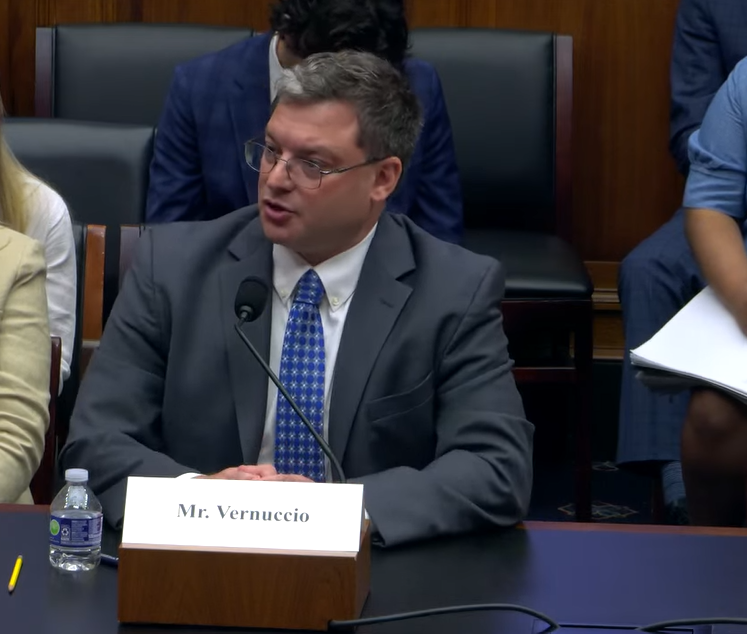Posts tagged Labor Law
Union panel rules Baltimore IG interfered in election, orders new vote
October 29, 2025 // A union election will be overturned and rerun as a result of social media posts from Baltimore Inspector General Isabel Mercedes Cumming that interfered with the process, a judicial panel for the union ruled this week. The 10-member panel, which oversees the American Federation of State, County, and Municipal Employees on an international basis, found that Cumming’s tweets, some of which were sent just days before the Aug. 23 officer election for Local 44, constituted “an act of interference” and an endorsement, regardless of the intent behind them.

America Doesn’t Have Enough Weapons for a Major Conflict. These Workers Know Why.
October 28, 2025 // Historically, in the fight against their bosses, unions have had only one real weapon to wield: their numbers. The primary goal of a labor strike is to blockade production and inflict pain on the company so that it will negotiate better terms. But in Orlando, it was hard for the union to enlist enough workers for the fight. Florida is a “right to work” state, meaning that union membership is optional. Workers in an organized factory are free to return to their stations and get back to work, leaving everyone else on the picket line to fight for a contract that would eventually apply to everyone.

U.S. Senate Committee on Health, Employment, Labor and Pensions titled “Labor Law Reform Part 2: New Solutions for Finding a Pro-Worker Way Forward.”
October 20, 2025 // Wednesday, Oct. 22, I4AW's Vinnie Vernuccio will testify at a labor hearing held by the U.S. Senate Committee on Health, Employment, Labor and Pensions titled "Labor Law Reform Part 2: New Solutions for Finding a Pro-Worker Way Forward."
The 15 Most Unionized Places in America
October 16, 2025 // To determine the most unionized locations in the U.S., researchers at Construction Coverage analyzed data from UnionStats.com and the U.S. Bureau of Labor Statistics. The researchers ranked metropolitan statistical areas according to total union members as a percentage of total employment. In addition to union membership, the researchers also included statistics on union representation, which is the share of workers whose terms of work are collectively negotiated (whether or not they are union members). Only metropolitan statistical areas with available data were included in the analysis.

Teamsters president notes ‘positive change’ with growing Republican union support in Senate testimony
October 9, 2025 // Rachel Greszler, senior research fellow at The Heritage Foundation, said the complexity of collective bargaining agreements means that both workers forming a union and the employer need ample time to consider their implications for the future of the company and its workforce. "When you have a first contract, especially if you have a company that has never been involved in negotiations or a union, that it's the first time that they're representing workers, they need to understand all the issues," she explained. She also said contracts like the United Auto Workers union's agreements with automakers such as Ford can run thousands of pages when accounting for memorandums of agreement, with several hundred items covered under the bargaining agreement.
California to weigh in on private labor disputes if NLRB can’t
October 2, 2025 // AB 288 expands the state Public Employment Relations Board's powers over private sector labor disputes like unfair labor practice charges and enforcing collective bargaining agreements. Other blue states, including New York, are trying to expand their state labor agencies' powers over issues that would normally be decided under the National Labor Relations Act, citing Trump's antipathy to organized labor.
Does federal marijuana prohibition mean cannabis workers can’t unionize?
September 19, 2025 // That’s what so-called “trigger laws” in California, New York and Massachusetts call for: allowing workers to petition state labor-relations entities if the NLRB cannot function. That could work against cannabis companies in such blue states. In contrast, it would be a boon for anti-unionization efforts in states with weak labor laws such as Missouri, where the cannabis industry is doing comparatively well compared to other states. It’s not clear what might happen next in Michigan, where Democratic lawmakers repealed anti-union “right-to-work” laws in 2024.
Hudson Valley Farmworker Challenges PERB Official’s Dismissal of Employee Petition Seeking Removal of UFW Union Officials
August 26, 2025 // Despite the fact he submitted a petition containing enough of his colleagues’ signatures to trigger a union decertification vote, Bell’s latest filing reports that the PERB’s Acting Director of Private Employment Practices and Representation refused to process his petition on the basis of four unproven claims of wrongdoing that UFW union officials filed against Porpiglia Farms management. At both state and federal labor boards, union officials often file such allegations (usually called “blocking charges”) to stop workers from exercising their right to vote a union out of power at a workplace –
SAG-AFTRA Confronts a Fran-less Future
August 21, 2025 // But now, with another tough contract negotiation on the horizon, SAG-AFTRA is going to have to push forward without its erstwhile leader from Queens. This time around, Drescher has decided against running for president. In her place, another celebrity, Lord of the Rings and Rudy star Sean Astin, and a rank-and-file performer, New England Local board member Chuck Slavin, are battling it out for the job. The stakes are high, given that the candidates face a darker and more foreboding landscape than the one that even Drescher confronted when she entered office in 2021 during the pandemic.
Under Trump, Student Labor Organizers Face New Challenges
August 7, 2025 // Anticipating a rollback of recent NLRB precedent, some unions have withdrawn petitions for recognition, looking for other paths to continue their work.
